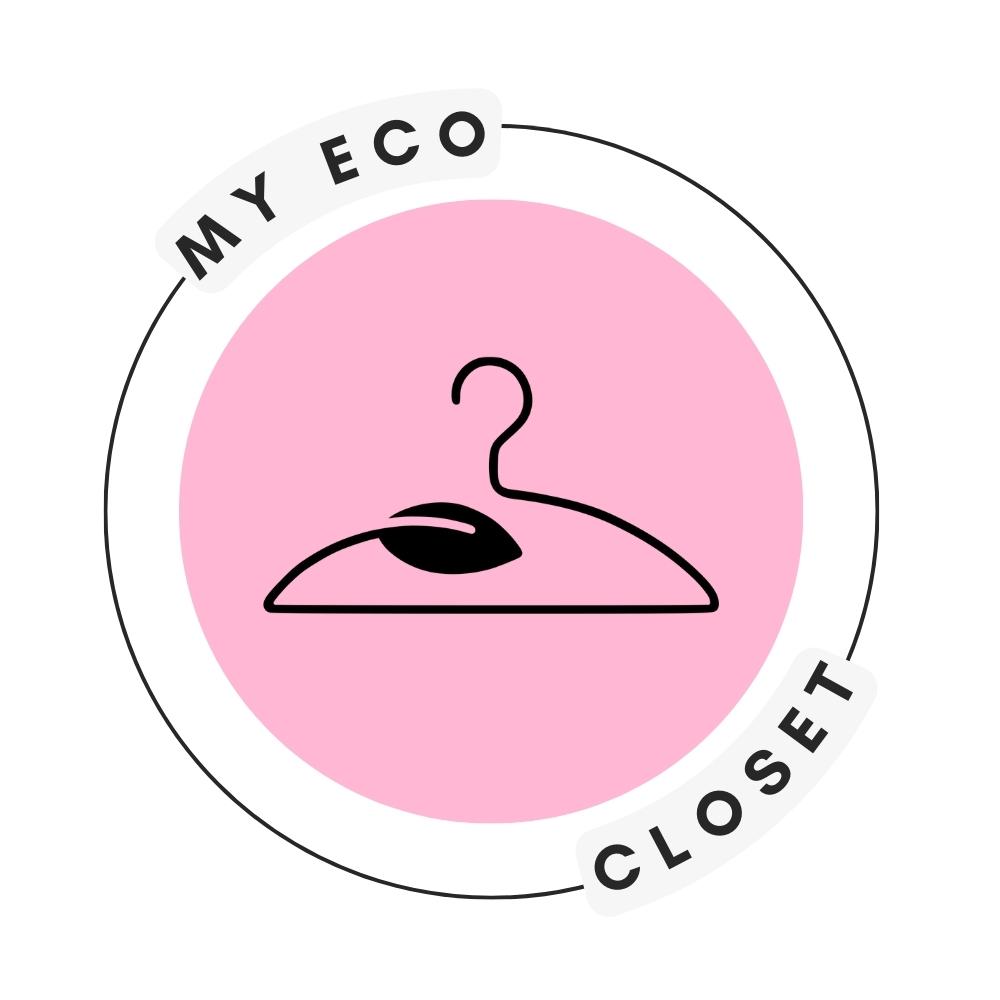With the snowballing crisis of the fashion industry, we all are cautious about what brands to buy from. When it comes to budget marketplaces like Shein, Fashion Nova, and Zara, low prices tend to be a sign of a myriad of ethical issues, such as modern slavery, non-biodegradable fabrics, and violations of human rights. Albeit affordable and popular, these brands are the very antithesis of sustainable fashion.
A global marketplace that emerged from the East, YesStyle an all-in-one e-commerce platform for K-beauty, shoes, and fashion from Korea, Japan, and Taiwan. The marketplace features a wide variety of apparel for men, women, and kids at affordable prices. However, does the low price range mean that the transnational retailer is another fast fashion conglomerate? Let’s find out.
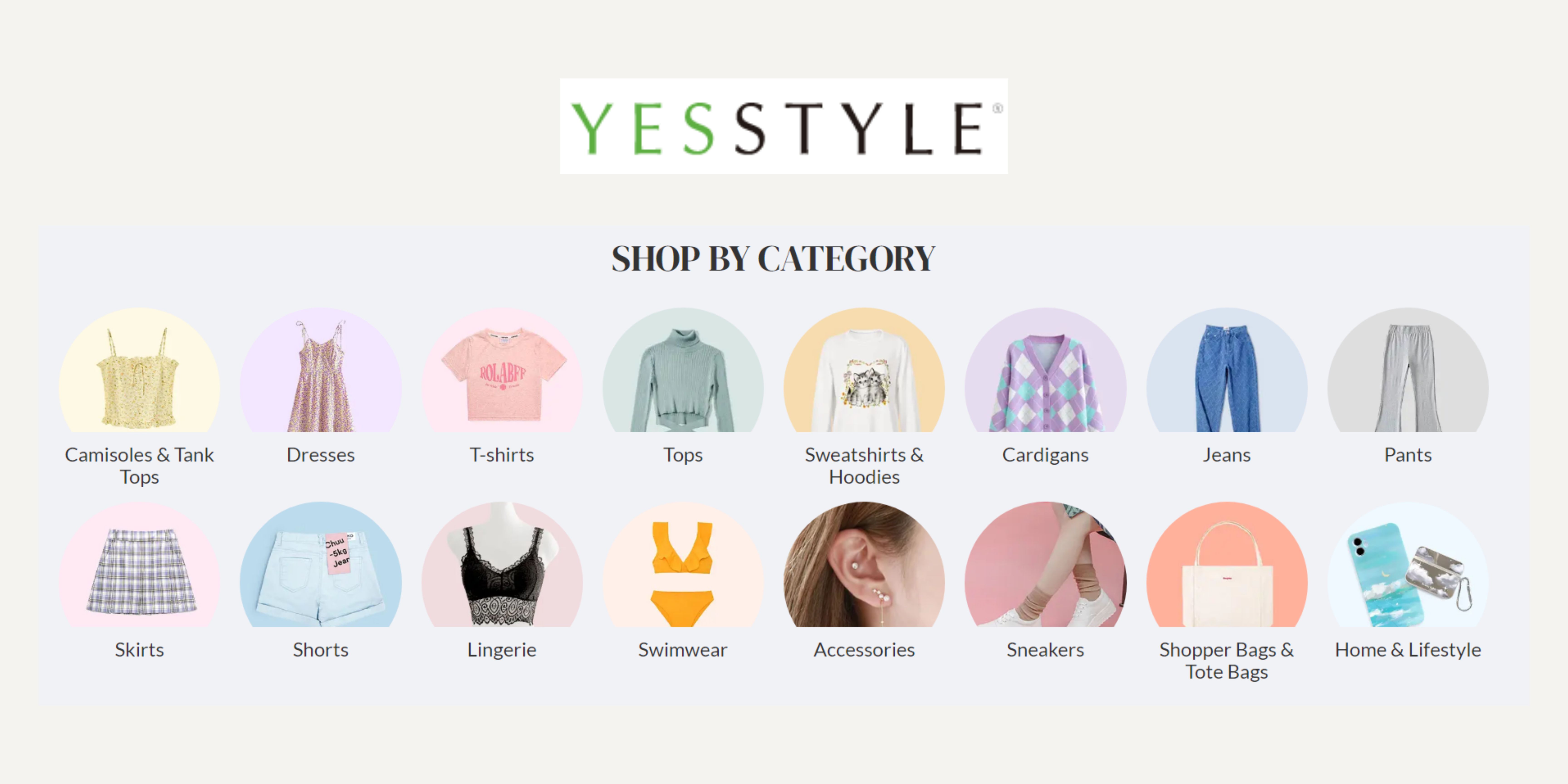
Is YesStyle Fast Fashion in 2025?
With the absence of consumer-facing sustainability reports, YesStyle is fast fashion brand that features polyester materials, trendy styles, and low prices. The marketplace meets the demand for affordable trending clothes while generating textile waste and harming the environment.
History of YesStyle.com
Launched in 2006, YesStyle has grown rapidly to become a significant player in global online retail. Owned by YesAsia.com Ltd, a multinational company headquartered in Hong Kong, YesStyle focuses heavily on the American, Canadian, and Australian markets, where it generates the largest portion of its sales.
The company offers an extensive range of Asian beauty products and fashion apparel that taps into the Korean Wave (Hallyu) and K-pop culture, providing Western consumers access to trendy products from East Asia. With 8.5 million monthly visitors, it ranks right behind other popular e-commerce sites such as PrettyLittleThing and NYandCompany, highlighting its strong digital presence.
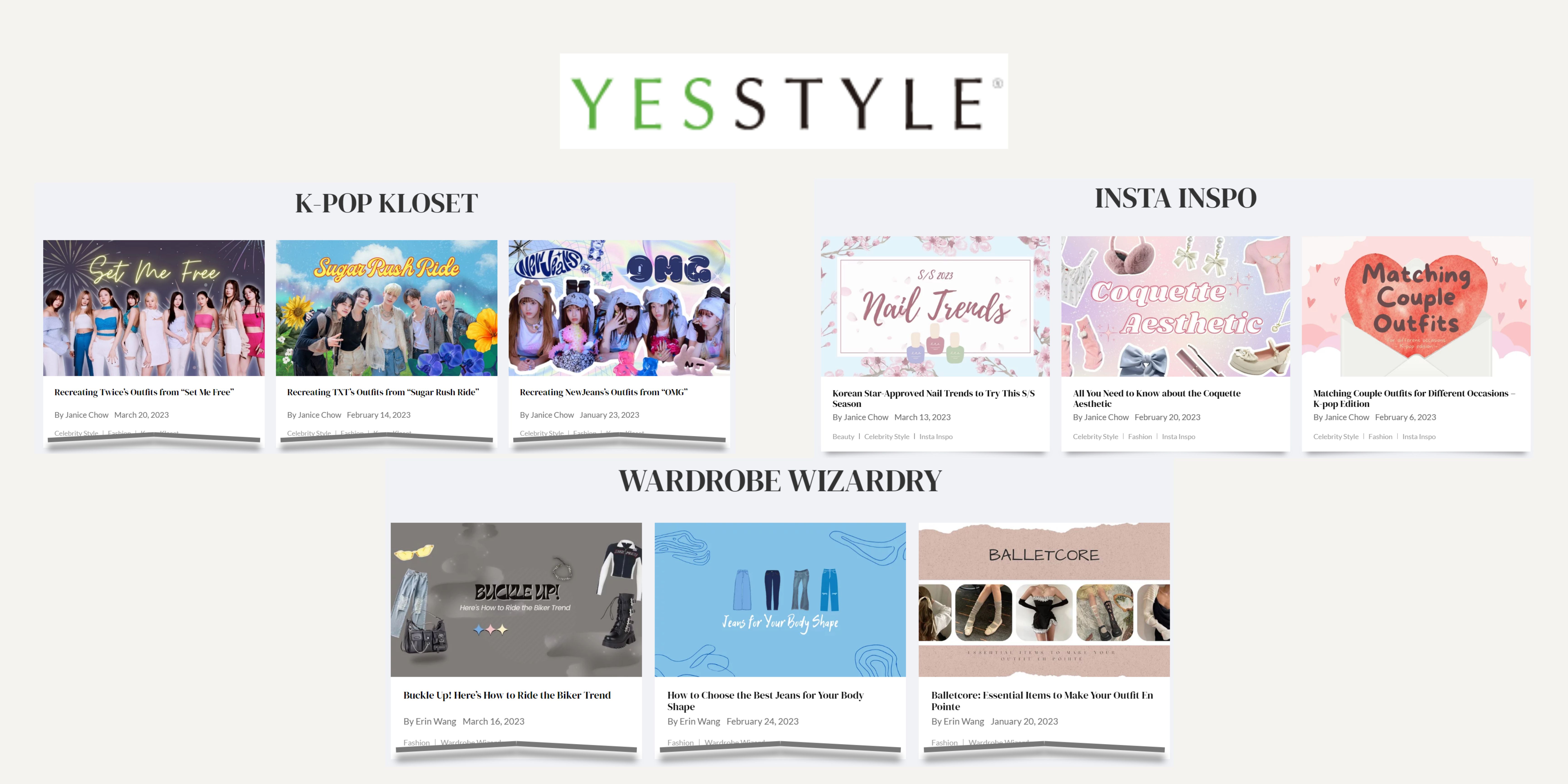
Exploring YesStyle’s Product Selection
YesStyle’s product selection is vast, featuring fashionable apparel for men, women, and children, along with an assortment of accessories and beauty products. The store’s products are sourced primarily from East Asia, with a significant portion coming from countries like South Korea, Taiwan, and Japan.
Notably, YesStyle offers apparel from Shibuya 109, a famous Japanese department store, and K-pop-inspired clothing that reflects the latest street styles seen on global pop icons.
Be it casual styles, modern office wear, accessories, or beauty products, one of the key elements that sets YesStyle apart is its curation of products by in-house stylists. The brand draws inspiration from celebrity style, TikTok trends, and street fashion, which keeps their offerings constantly updated as per the latest trends.
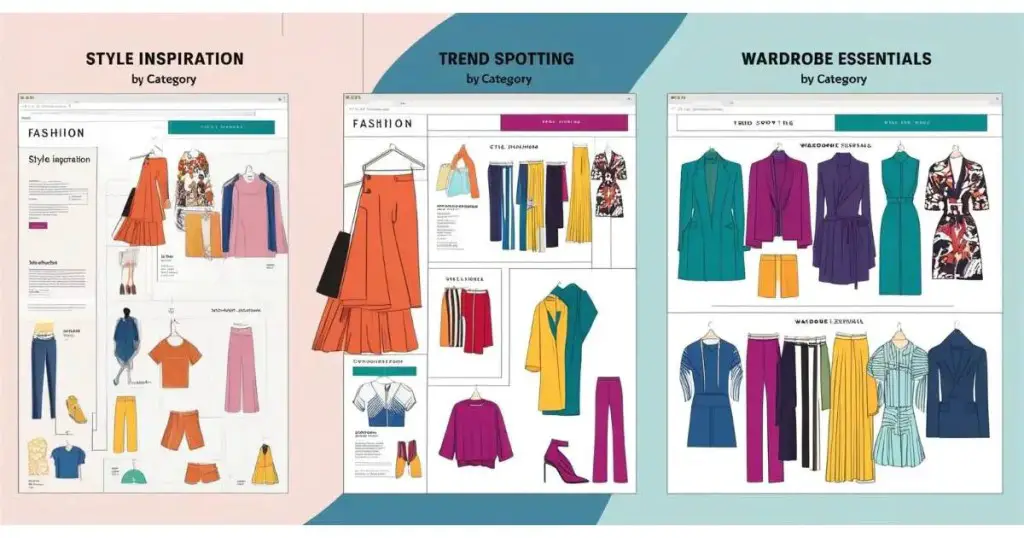
Product Segmentation by Category
YesStyle’s website isn’t just organized this way by chance. Every section is carefully designed to create the rapid turnover that defines fast fashion, which ties into the company’s wider product segmentation strategy.
When you visit YesStyle’s official website, you will be greeted by sections like “celebrity style”, “wardrobe wizardry, and “trendspotting”, featuring TikTok, celebrity street style, or general fashion inspiration for their products.
This level of product segmentation aligns with the brand’s content-to-commerce pipeline. Every article on YesStyle about aespa, LE SSERAFIM, or K-drama fashion isn’t just content or fashion inspiration – it’s a carefully crafted sales funnel designed to convert cultural moments into immediate purchases.
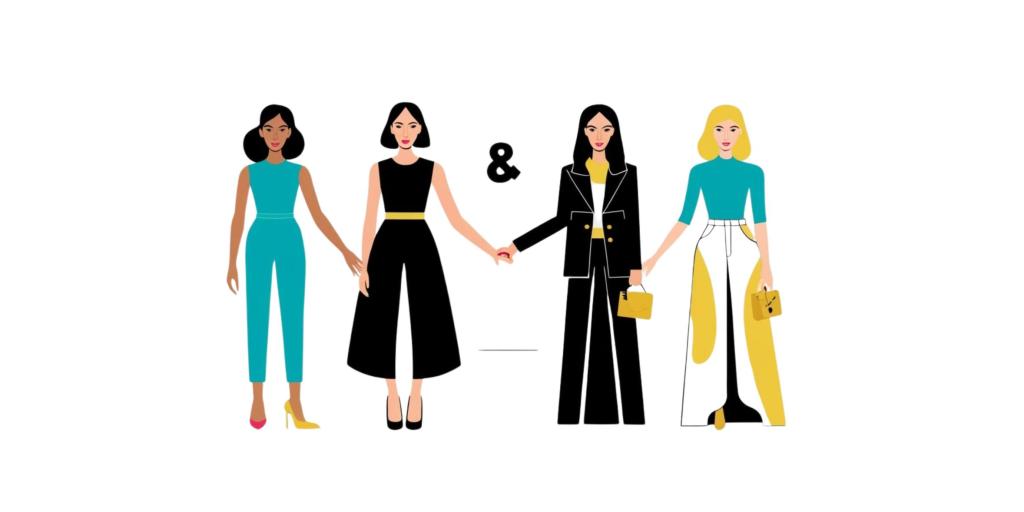
From Celebrity Style to Fast Fashion
YesStyle’s approach to celebrity fashion, particularly through K-pop, perfectly demonstrates the lightning-fast nature of modern fast fashion. Think about it: a celebrity wears something today, and within days, YesStyle has similar items ready to sell.
Consider how YesStyle leverages multiple cultural touchpoints simultaneously. They don’t just focus on one type of celebrity influence – they move at breakneck speed across K-pop, Netflix shows like “THE INFLUENCER,” and K-dramas like “QUEEN OF TEARS.” This multi-channel approach maximizes their ability to capture and monetize trends the moment they appear.
Ultimately, YesStyle’s operational model, which capitalizes on the massive popularity of global entertainment, represents the evolution of fast fashion in the digital age. Using cultural content as a vehicle for overconsumption, the brand taps into celebrity influence to drive constant purchases.

YesStyle’s Business Model: Dropshipping And Customer Experience
Consumers raise concerns about YesStyle’s business model, speculating that the marketplace uses dropshipping. For instance, a consumer on TrustPilot claims that the marketplace does not “own anything” and purchases its products from other suppliers – due to this, the delivery is “slow, unreliable, and very difficult to return.”
While YesStyle operates as a direct-to-consumer store, it does dropship certain items. This means that while the retailer keeps its products as stock, it also ships out products directly from the manufacturers.
On its customer service FAQ section, YesStyle clarifies that it directly sources many of its K-beauty products from South Korea, and that items labeled “Made in Korea” are manufactured there. However, other items without this label may be sourced from South Korea but produced in different countries, adding further complexity to the brand’s supply chain transparency.
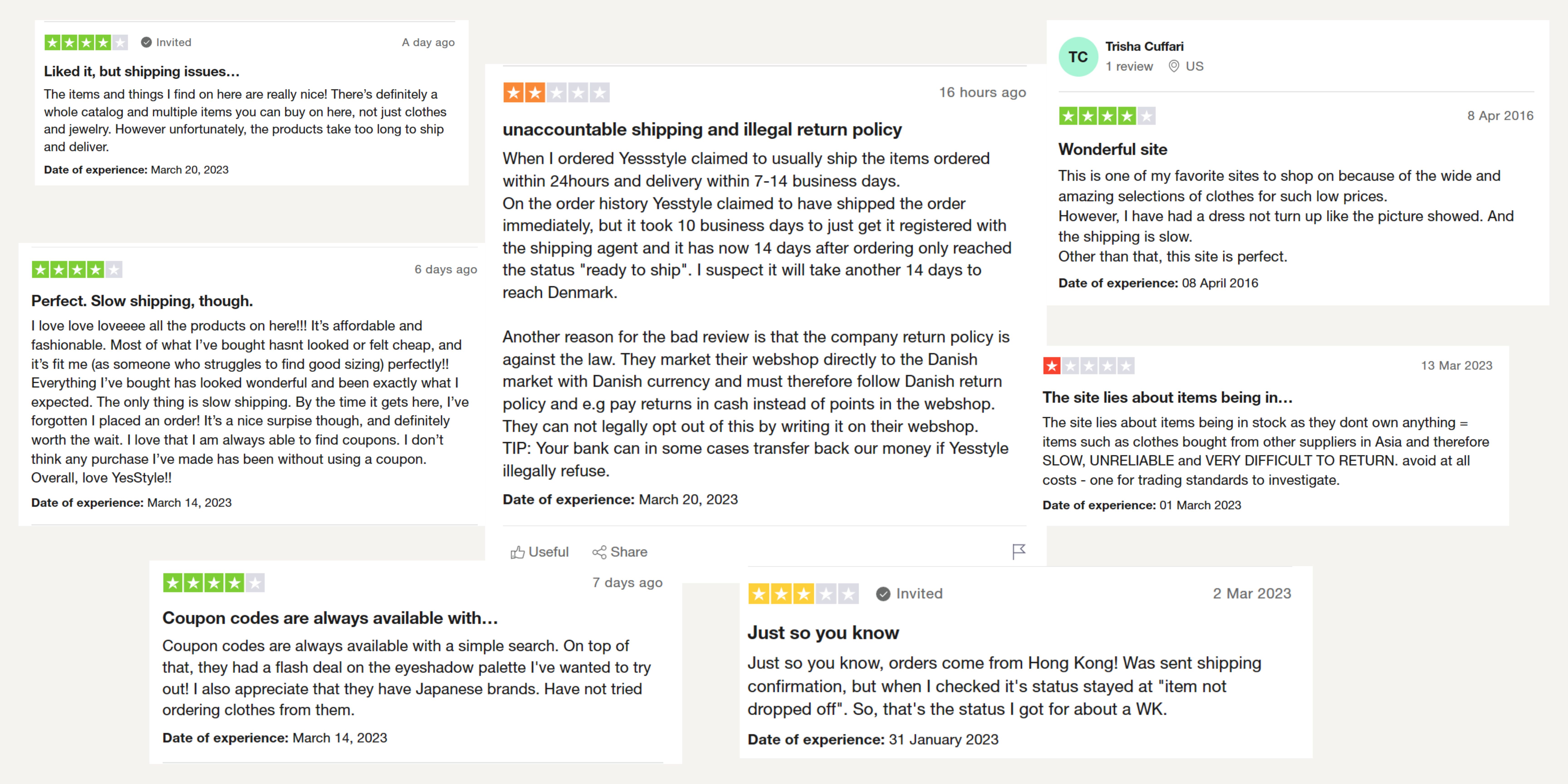
Is YesStyle Fast Fashion According to Its Customers?
With its wide selection of Asian beauty and apparel, the platform bridges the gap between Western consumers and Eastern brands. In other words, the marketplace helps niche brands to penetrate the Western market, and its main focus lies in “novel products, exotic ingredients, and affordable prices.”
However, what’s hiding behind this benevolent mission is a lack of quality across the entire product assortment. In fact, while K-beauty enthusiasts appreciate their purchases, fashion consumers express their dissatisfaction with the quality of clothing.
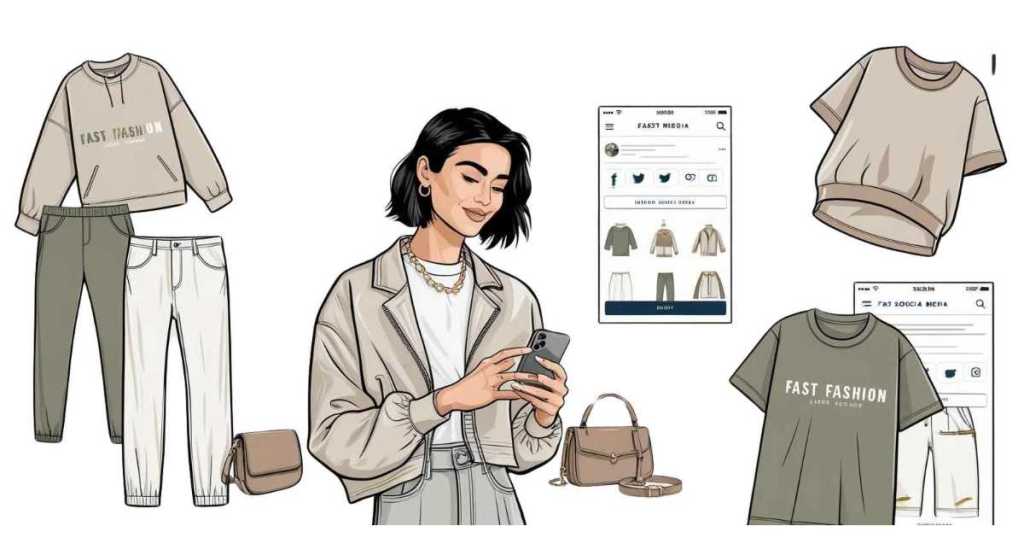
Promotional Offers: Saying “Yes” to Up-To-The-Minute Styles?
There’s a reason why Shein, Fashion Nova, and Romwe are so popular among Gen Z’ers and Millenials. Their trendy product lines appeal to the masses and lure them into the hamster wheel of fast fashion. These brands hop on trends quickly and refresh their product offering constantly – ultimately, treating clothing as a cheap, convenient, and disposable commodity.
Similarly, YesStyle fires up the instant gratification appetites of its consumer segment. With coupon codes and flash sales, it attracts Millennial or Gen Z consumers who prioritize excess over quality, which is the antithesis of sustainability.
In fact, the mission of the K-Fashion collection is to “make the dream of being 25 years old forever a reality for all woman that is the most radiant and beautiful”, as noted by the featured K-Fashioned designer, Chuu.
Moreover, as mentioned by the company, YesStyle strives to “bring the latest trends”, along with Asian brand names, to the global market. Such emphasis on trends lies at the core of fast fashion – just like fast food, the brand’s poor quality yet low prices are truly addictive.

Pricing, Shipping, and Manufacturing: YesStyle’s Fast Fashion Trifecta
Fast fashion has become ubiquitous, due to the prevalence of cheap, fast, and offshore manufacturing. Each year, around 100 billion clothing items are produced globally. This has led to a whopping 400% increase in consumption of clothing in the last two decades.
Given that, the hyper efficient nature of the YesStyle marketplace, in tandem with affordability, raises many questions about its manufacturing practices. Could it be that YesStyle hides unethical labor practices and environmental damage behind its stylish products?
YesStyle’s Shipping Policies
The marketplace offers premium standard shipping when customers spend at least $50 on a single order. However, many customers complain about the speed of delivery, which takes more than the “21 days” – the promise that the company often fails to deliver.
Regardless, the marketplace’s pursuit of fast shipping replicates the fast fashion business model. While reputable luxury brands produce items on a made-to-order basis, YesStyle strives to distribute its products from one side of the planet to another in mere “21 days” (or “7 days”, in case the products are in stock!).
Be it next day shipping or rushed delivery, fast fashion purchases harm the environment with high carbon emissions. As the packages travel by air, YesStyle encourages carbon-intensive, expedited shipping practices, which not only increases packaging waste but also creates a notorious amount of pollution.

Inside The Price Tags: YesStyle’s Fast Fashion Approach
YesStyle has found its sweet spot in fast fashion with prices that sit comfortably between ultra-cheap retailers and premium brands. Most items fall in the $15-60 range, making trendy pieces accessible without feeling too cheap. The brand’s pricing structure breaks down into clear tiers:
- Basic Pieces ($15-25): Simple dresses, tops, and lightweight garments dominate this range. You’ll find items like a sleeveless corset dress for $22 or a long-sleeve top for $15 – perfect for building a basic wardrobe without breaking the bank
- Mid-Range Items ($35-40): This category includes more structured pieces like pants and detailed garments. For example, fleece-lined wide-leg pants go for around $36
- Statement Pieces ($40-60): More elaborate designs and outerwear sit at this higher end, targeting shoppers looking for something special but still affordable
- Accessories (Starting at $5): Small items like jewelry and beauty tools start low, making them perfect impulse buys during checkout.
What makes YesStyle particularly intriguing is their strategic positioning – they’ve deliberately placed themselves above rock-bottom fast fashion prices while maintaining accessibility. This sweet spot allows them to capture consumers who might hesitate about ultra-cheap fashion but still want trend-driven pieces at reasonable prices.
Their promotional strategy reinforces this positioning through regular sales cycles and a points-based loyalty system. While not revolutionary, these tactics effectively maintain customer engagement and encourage repeat purchases. It’s a tried-and-true approach to fast fashion: keep prices low enough for impulse buys but high enough to suggest better quality than the cheapest alternatives.
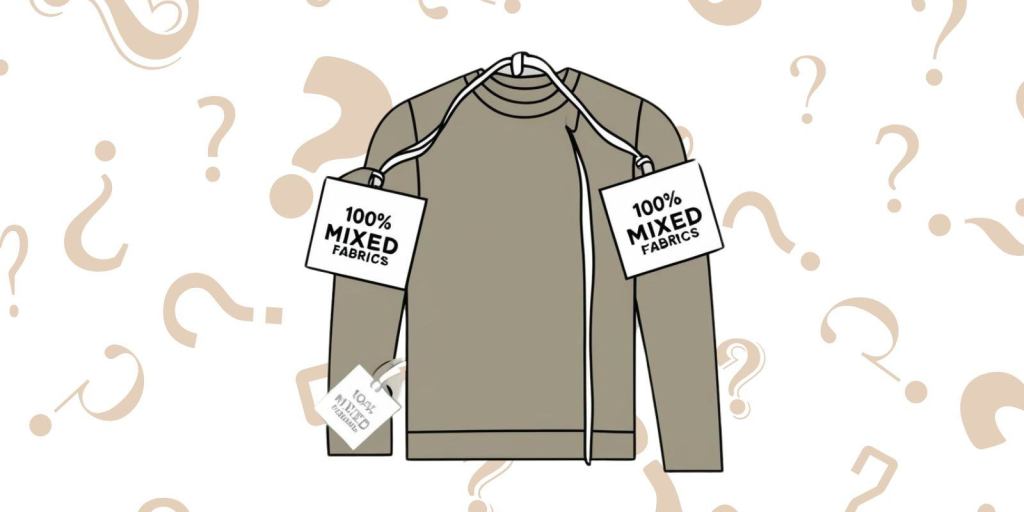
Fabrics: YesStyle’s Polyester Issue
Browsing through the fashion segment, you may notice that the majority of YesStyle’s products feature synthetic fabrics like polyester, acrylic, and nylon. However, the marketplace doesn’t necessarily disclose the exact fabric compositions of its products, labeling certain products as “100% mixed fabrics.”
This is extremely problematic since the use of synthetic fabrics leads to a myriad of environmental issues, such as pollution, the destruction of wildlife, or the spread of microplastics in nature. The CO2 emissions caused by synthetic fabric production are high, as they are made of fossil fuels like crude oil.
Therefore, YesStyle’s wide selection of clothing and accessories that are made with synthetics – be it polyester handbags or acrylic cardigans – are the building blocks of fast fashion. As oil-based plastics, they pollute the air, soil, and water while taking up to thousands of years to decompose.
Consumer Responsibility
As of today, the fashion industry fails to formulate a way to recycle synthetics fabrics, which are non-biodegradable or recyclable. Due to this, almost 60% of synthetic clothing is disposed of within a year of production.
Moreover, across the entire fashion industry, only 1% of materials get recycled, which highlights the importance of consumer responsibility in fabric selection.
Avoiding brands like YesStyle that produce non-biodegradable clothing is crucial. in a circular economy, materials should last for as long as possible while minimizing waste. For this reason, our individual actions should send a strong message against the brand’s promotion of temporary trends, powered by cheap, synthetic textiles.

Take Action Today – #WhatsInMyClothes?
As a customer, you have the right to find out where your clothing was sourced and how it was made. In other words, you have the right (or the responsibility) to track the supply chain of your favorite brands.
So, get in touch with YesStyle today and inquire about #WhoMadeMyClothes, #WhatsInMyClothes, or any other sustainability-related concern. Simply head over to YesStyle’s ‘Contact Us’ page to demand more transparency and hold the brand accountable for its unethical practices. Your activism will surely bring forth actionable results.
Final Thoughts
Say “yes” to style but “no” to sustainability? The prevalence of low-cost, trendy clothing on the marketplace is obvious. However, is YesStyle fast fashion in 2023? Our verdict is yes. The brand refuses to disclose elaborate information on its supply chains, business practices, and impact on garment workers overseas.
By this, YesStyle avoids consumer feedback, as nobody can track its policies and practices from overseas to the Global North. The brand’s absence of corporate transparency results in its blatant use of synthetic fabrics, questionable pricing strategies, as well as overproduction of trendy yet synthetic clothing.
Frequently Asked Questions
No, YesStyle does not prioritize sustainability. While the company offers affordable fashion, many of its products are made from synthetic materials like polyester, which are harmful to the environment. The brand also lacks transparency regarding its supply chain and sustainability initiatives.
Yes, YesStyle employs dropshipping for some of its products. This means that while it holds certain stock in its warehouses, other items are directly shipped from manufacturers, which can result in slower delivery times and less control over product quality.
Many customers report mixed experiences with YesStyle’s clothing quality. While some K-beauty products are well-received, fashion items often suffer from low quality, especially in terms of fabric durability and stitching. Customers often complain about inconsistent sizing and finishing.
YesStyle has received customer complaints about its slow shipping times, which often exceed their promised delivery window of 21 days. This can be attributed to dropshipping practices, where products are shipped directly from manufacturers, sometimes resulting in delays and unreliable delivery times.
No, YesStyle is not transparent about its supply chain, and this lack of openness raises concerns. They don’t provide details on the labor conditions or environmental impact of their production processes. The absence of sustainability reports makes it difficult for consumers to make informed choices.
